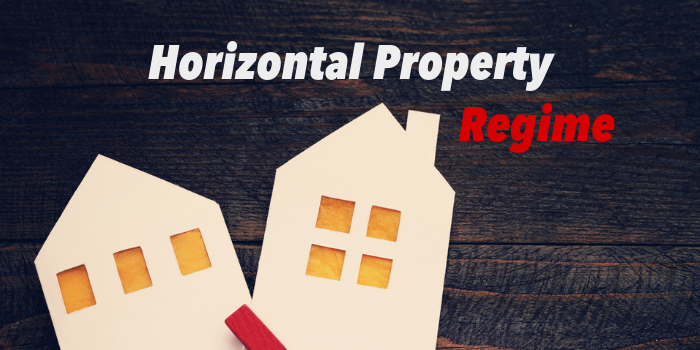A Horizontal Property Regime (HPR) is a zoning policy which essentially allows for two new houses to be built on a piece of land that was previously zoned for just one house. This results in tall, narrow houses, either attached or separated by mere feet. HPRs were created to accommodate the rising number of people desiring to move closer to cities; they allow for more houses to be built in older neighborhoods, which are closer to urban amenities where previously-existing single-family homes were more spread out.
HPR Formation
HPR zoning is very similar to condominium zoning – it has its own set of legal requirements and governing rules, which vary from state to state. Most have bylaws that disclose how the regime will be governed, typically resulting in the creation of a homeowners’ association. The HOA manages the shared spaces and resolves disputes among condo owners. It must be legally registered, which is most often done by forming an LLC.
The HOA is formed for the purpose of keeping both owners accountable to an independent set of rules which will keep both the houses and surrounding land marketable. Whoever buys an HPR owns only the house and the land beneath the house – the rest of the land is considered common area, and is to be maintained by the HOA.
The HOA must file an official document called a Declaration. This declaration is similar to the bylaws of a condominium community, or the CC&Rs of a neighborhood HOA. It determines what is shared, what must be paid, and what the expectations and responsibilities of the residents are. The declaration also defines the legal obligations and legal rights of each owner of the property. HOA rules may also include things such as regulation of assessments, how maintenance and waste management will be handled, placing limits on the number and type of allowable pets, rules regarding noise levels, and so forth. The HOA must have specific bylaws that outline expectations, rules, and consequences. Being as specific as possible will help eliminate any conflicts or problems in the future. The ultimate goal of the HOA rules is to maintain property values.
Know Before You Buy
An HPR can be a great opportunity for real estate investors because it allows for two transactions on one piece of land. If you are considering investing in an HPR, talk with a real estate investment professional to learn more about the area would like to invest in.
As a prospective homeowner, an HPR can be a great property to purchase because it will likely be in an ideal urban location and will offer the benefits of homeownership, but also includes a bit of help from the HOA in taking care of the common land areas. Before purchasing any property in an HPR, be sure to read over the Declaration to know exactly what is expected of you as an owner and what you would be receiving in return.
For additional information and HOA management services, contact Spectrum Association Management today!







